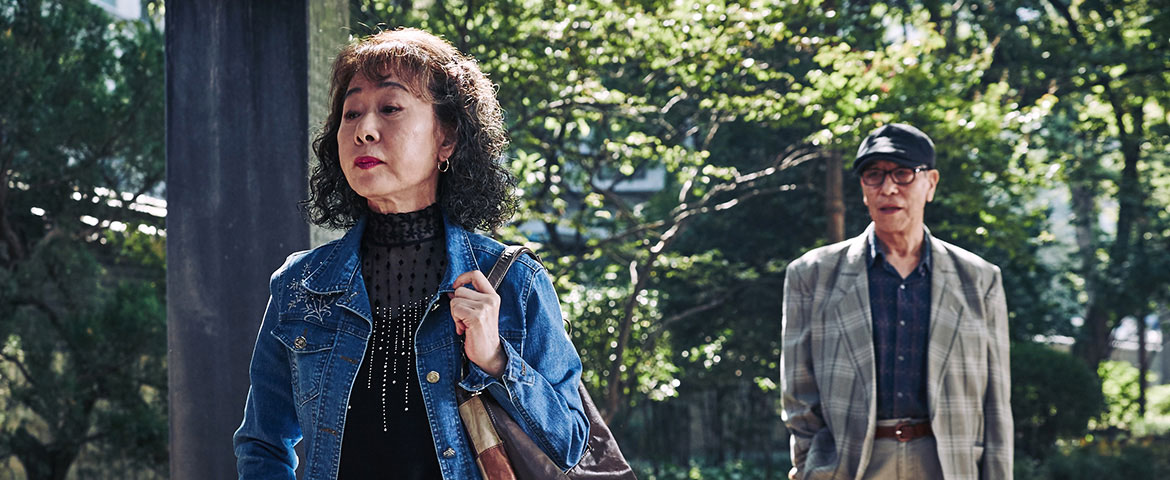
Sex work in conservative South Korea is illegal, yet it thrives from glowing red windows, massage parlours, “business” bars, bath houses, hair salons with brightly-coloured swirling blue and red poles and noraebang where you can do more than sing songs. It contributes about $14 trillion KRW (about $16.5 million AUD) to the GDP per year and 20% of adult men have paid for sex, with a visit to a brothel as part of a night out with the boys becoming a social norm.
The Bacchus Lady, featured recently as a part of the Melbourne International Film Festival, focuses on So Yeong, an elderly sex worker who solicits clients from the Jongmyo Shrine park in Seoul. She seals the deal by selling her clients a bottle of Bacchus D, a Korean energy drink which has been around since the 1960s.
The film opens with cheesy Parisian music played over a shot of a grimy, industrial neighbourhood in Seoul. So Yeong is seeing a doctor for an STI. There’s no shock or judgment from either of them – it’s merely a hazard of So Yeong’s job.
“Damn fucker, should’ve used a condom,” she sighs in a matter-of-fact sort of way.
As she leaves, she witnesses a woman stab a doctor and her son almost run into traffic. So Yeong saves the boy, Min Ho, and decides to take him back to her crappy studio apartment in Itaewon (a notoriously sleazy Seoul neighbourhood) to care for him. Suddenly So Yeong transforms into my umma or halmeoni as she encourages Min Ho to eat.
The next day, we meet the So Yeong’s neighbours as she asks them to care for Min Ho: her transgender landlady, Tina, who has a Japanese gangster lover; and bachelor slacker, Do Hoon, who lives off packet ramen. In exchange for cigarettes, Do Hoon agrees to look after Min Ho and So Yeong goes about her day. Actress Yeon Yeo Jeong makes So Yeong an elegant yet street-smart woman who transcends her situation and surroundings. Every movement is deliberate and graceful, and her stoic face hides hundreds of secrets and thoughts bubbling under the surface, like someone trained to confine her emotions.
So Yeong’s liaisons with her clients are short and awkward, filmed in cramped pay-by-hour “love motels” with no windows. The Bacchus Lady fiercely rejects the tired sex worker tropes. Nothing about it is glamorous, scandalised, obscene, dramatic, demonised or angsty. It just is. When So Yeong tries to solicit a young man, only to find that he’s an aspiring film director who wants to make a socially aware film about elderly sex workers, she literally walks away while sassily informing him “Don’t call me granny! My vagina is still young!” and demands $10.
While So Yeong is ageing, she doesn’t seem it. Her tight, modern clothes make her seem ageless. But her regular clients are also ageing in a very noticeable way – no longer dapper gentlemen or Casanovas, but vulnerable old men humiliated by the indignity of losing control of their bowels, dementia and loneliness.
It’s So Yeong’s meetings with old friends, old clients, her neighbours, her motherly affection towards Min Ho, trying desperately to reach out to Min Ho’s Filipino mother using her limited English, talking to migrants in her multicultural neighbourhood and an emotionally-charged meeting with a half Korean half African American adoptee, which get far more screen time than her profession.
So Yeong’s world consists of people who aren’t talked about in respectable mainstream Korean society. Her world is changing around her and these genuine human connections are becoming more precious as she loses some of them. This is when So Yeong lets her guard down, we learn snippets of her past and she allows herself to feel emotion. The appearance of So Yeong’s friend’s young, modern, attractive family from America visiting him in hospital is jarring, like they were meant to be in a Hallyu rom com but walked onto the wrong set.
As the film starts to wrap up with So Yeong finally revealing a secret that has haunted her for years and makes a genuine connection, the action takes an abrupt and upsetting turn because, of course it does, it’s a Korean movie.
Setting aside the jarring ending, The Bacchus Lady is a refreshingly real film about ageing in Korea, and family when you don’t really have one.

